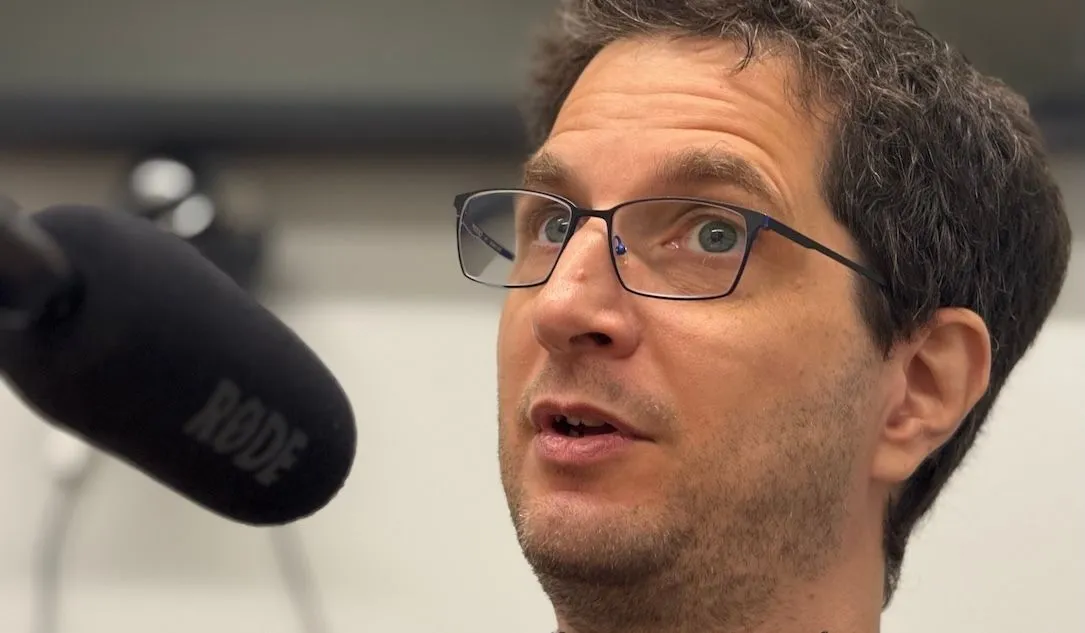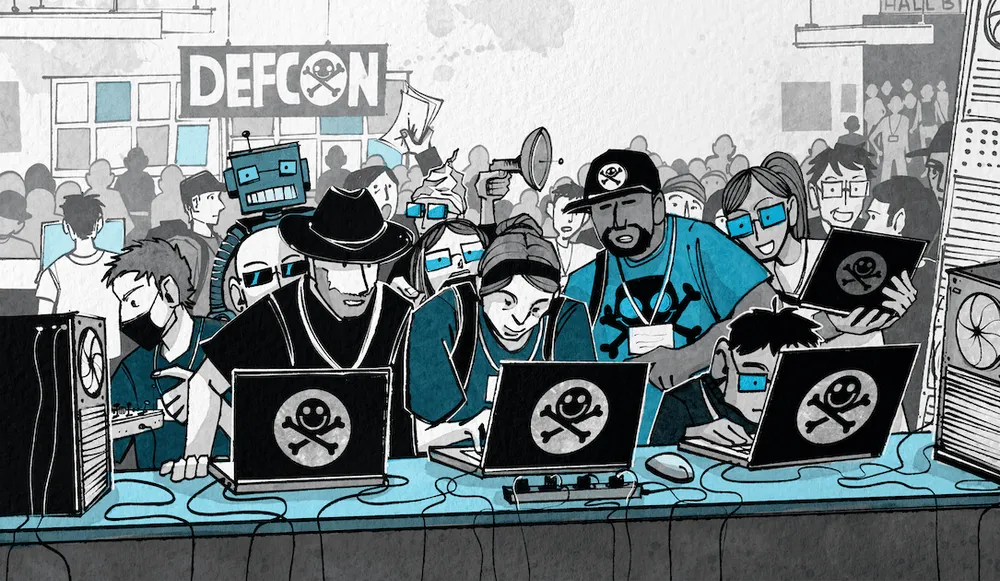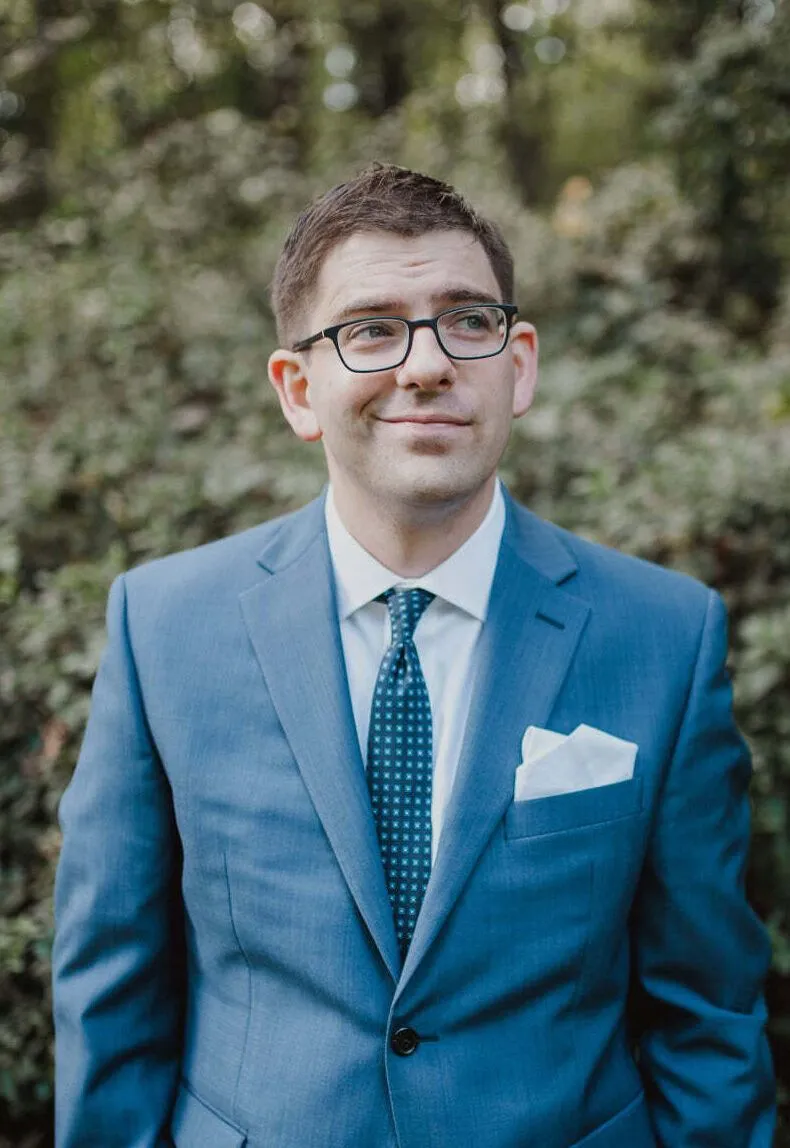Jeff Moss on DEF CON and its shadow power
The elevators will be the first sign that some 30,000 hackers have arrived in Las Vegas for the wildest hacker party on earth: DEF CON. From August 7 to 10, the Venetian and The Sahara hotels on the Las Vegas Strip will host the world’s most infamous hacker gathering.
But before you even step into a session on AI jailbreaks or microgrid exploits, you might notice loud muzak in the elevators, key cards misbehaving and your cellphone acting weird — all part of the attendees hijinks that have become legion every summer when hackers descend on Vegas with backpacks full of cables, burner phones and a desire to test the limits.
DEF CON began in 1993 as a one-off party for a friend who never showed. It has since evolved into a cultural and technical phenomenon — equal parts circus, symposium and warning system. It’s where researchers expose vulnerabilities in satellites and voting machines. Where 14-year-olds reverse-engineer tractor trailers. And where the U.S. government quietly recruits from the back of the room.
“It wasn’t supposed to be like this,” Jeff Moss told the Click Here podcast in a recent interview. “I was just trying to throw a party.”
A handle and a modem
Before DEF CON, before Black Hat, before “cybersecurity” was a word, Moss was a teenager with a computer and a dial-up modem he had to borrow from a neighbor down the street. And to the young Moss, the online world was magic. “I can't drink, I can't drive, I can't vote,” Moss said. “But I can talk to people on the other side of the planet. Right? That's super, super exciting for a kid.”
In the late 1980s, Moss ran 11 bulletin boards out of a spare room in California. “So I was generally the hub for the United States,” he said. “And I was pretty strict on moderation. And so I was kind of a dick, you know, like if people were not being very relevant, I'd just delete them. ... But because of that, people wanted to get on my board because there was a really high signal. Very low noise.”
He called himself “The Dark Tangent,” a misremembered reference to a comic book called D’Arc Tangent. “Instead of D’Arc tangent, I remembered it as Dark Tangent,” Moss said. He was obsessed with information, obsessed with connection and, like many hackers of his generation, he war dialed — automatically calling every number in a prefix looking for open modems — just to see what was out there.
“Everybody war dialed,” he said. “If you ever saw the movie WarGames, right at the beginning, Matthew Broderick, he's war dialing ... he's dialing every phone number sequentially looking for a modem to find a computer.” That same curiosity would lead him to DEF CON.
The party that became a movement
In the summer of 1993, someone on Moss’s Platinum Net BBS network was moving out of town and suggested a farewell party. Moss offered to organize it in Las Vegas. He sent out faxes — lots of them — to everyone he could think of who might have a passing interest in the internet – including the local Secret Service field office.

Image: Sean Powers/Recorded Future News
“Since we knew the feds were gonna come to DEF CON, I sent a fax to the Secret Service in Las Vegas,” he said. “We’re gonna do this hacking conference and you're invited, Secret Service. You should come and speak.”
About 100 people showed up to that first DEF CON. There was no schedule. No signage. Just a room, some folding chairs and a tape recorder for the talks. “None of this stuff was thought through, right? It was basically like, the room opens at two. See you there at two,” Moss said.
And that was enough. Elevators got hacked. Dumpster dives yielded bags of telecom documents. One attendee — who turned out to be a federal prosecutor — walked by as hackers dumped bags of confidential printouts onto the ballroom floor and didn’t ask too many questions. “She said, ‘Was the dumpster inside the chain-link fence or outside?’ We're like, ‘It was outside.’ She said, ‘Excellent. Enjoy yourself.’”
Even then, Moss could sense something more was happening, that a community was growing. DEF CON wasn’t just a party — it was a reckoning.
When the watchers start watching the watchers
It turns out, from the very beginning, the government was there on the sidelines, watching events unfold. “Some guy comes up to me, lifts up his shirt, shows me his Secret Service badge,” Moss said. “‘Hey, this is a great con.’”
At a capture-the-flag hacking competition, Moss noticed someone scribbling furiously on Post-it notes. “Post-it notes going down his arm … now they're working up his chest,” Moss said, adding that he couldn’t make heads or tails of what he was doing. But he started noticing that there were quite a few people there who didn’t look like they fit in.
Nearby, another man stood at the edge of the room. “I'm like, what are you doing here? Where are you from?” Moss recalled. “He's like, ‘Oh, I'm from the DIA [the Defense Intelligence Agency].’ He’s like, ‘I’m trying to figure out if other people are here trying to recruit hackers,’” Moss said. “And I'm like, ‘Fascinating. How would you do that?’ And he goes, ‘You stand at the edge of the room and you watch… for other people watching.’”
That’s when Moss realized the gravity of what he’d built. “There’s value and things going on here that you don't comprehend,” he said. “And you might not ever comprehend.”
Punk rock and profit
By DEF CON 3, the gathering had started to shift.
“Another whole breed of people started to show up from Los Angeles and they were trashing the place and it was no fun,” Moss said. “Just get the microphone, blah blah blah blah blah, and throw the microphone on the ground … that's a $150 microphone I'm gonna have to pay for now.”
So the community self-policed. People stepped up. A culture took root. “They kind of deputized themselves and that problem went away,” he said.
Companies were starting to pay attention. And hackers were getting job offers. “That was the beginning of the antisec movement,” Moss said. “You're a sellout if you take a job in this area. ... All of a sudden, all these banks and places going online needed help.”
Some saw it as evolution. Others called it betrayal.
“With that came a lot of money. Flooding. The parties went crazy. People are showing off with all the champagne action and the limo cars rented,” Moss said. “And then there are the other half who are like not into that … they just liked the technology.”
So Moss launched Black Hat — a more formal, corporate sibling to DEF CON. “One's infosec, one's hacker,” he said. “One's kind of 'keep DEF CON weird' and the other one is 'help get me a better job.'”
DEF CON as oracle
More than three decades in, DEF CON is still a barometer for what’s coming next. In recent years, it’s tackled everything from microgrid exploits to drone hijacking to AI hallucinations. “They're always looking for green fields,” Moss said. “Lock picking. ATM machines. Aerospace. Satellites. Biomedical. Whatever the new thing is, they want to explore it.”
And while Moss — now in his 50s — mostly watches from the sidelines, he sees something deeper in the chaos. “It's always a reflection of the community,” he said. “More automation. More AI. More politics. Supply chain. Farming automation. Maritime. There's all these layers going on and I get to see some of these people peeling back these layers.”
He’s nostalgic for the early days, but clear-eyed about the present. “I miss the olden days too. But I like the current days too. It's different and it's a reflection of what's happening and you can't… freeze that lightning in a bottle,” he said. “It's ongoing. Continuous evolution.”
If you’re headed to Las Vegas this week, a word of advice: Take the stairs.
Dina Temple-Raston
is the Host and Managing Editor of the Click Here podcast as well as a senior correspondent at Recorded Future News. She previously served on NPR’s Investigations team focusing on breaking news stories and national security, technology, and social justice and hosted and created the award-winning Audible Podcast “What Were You Thinking.”
Sean Powers
is a Senior Supervising Producer for the Click Here podcast. He came to the Recorded Future News from the Scripps Washington Bureau, where he was the lead producer of "Verified," an investigative podcast. Previously, he was in charge of podcasting at Georgia Public Broadcasting in Atlanta, where he helped launch and produced about a dozen shows.




